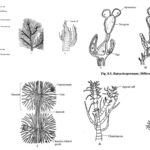Nuclear pores are small openings present in the nuclear envelope, which is the double membrane that surrounds the nucleus of a cell.
These pores are made up of large protein complexes that span both the inner and outer membranes of the nuclear envelope.
Their main function is to regulate the movement of materials between the nucleus and the cytoplasm.
They allow the passage of essential molecules such as:
Messenger RNA (mRNA) and transfer RNA (tRNA) from the nucleus to the cytoplasm.
Proteins, enzymes, and nucleotides from the cytoplasm into the nucleus.
Nuclear pores ensure controlled exchange, maintaining the internal environment of the nucleus while enabling necessary molecular communication with the rest of the cell.
0 found this helpful out of 0 votes
Helpful: 0%
Helpful: 0%
Was this page helpful?




